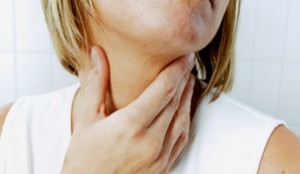Larger Trials Continue to Find Acupuncture a Safe and Effective Swallowing Therapy
When small, promising case studies yield positive results, they call for larger studies to verify and expand on their progress. Lately, the effects and benefits of acupuncture have received this same treatment, with a particular focus on its role in treating dysphagia.
Though the most recent large-scale clinical trial, facilitated by the National Institutes of Health and sponsored by Boston’s Dana Farber Cancer Institute, has not yet released its findings, we can take a look at another randomized controlled trial that yielded good news for dysphagia sufferers in 2012.
Who participated?
While we focused last week on dysphagia as a side effect of chemoradiation therapy in head and neck cancer (HNC) patients, dysphagia is also a common result of various neurological disorders and conditions, including:
- stroke
- multiple sclerosis (MS)
- Parkinson’s disease
- muscular dystrophies
- head injury
Essentially, any disorder that affects the central nervous system can often have a negative effect on a sufferer’s ability to swallow. In this study, 87 subjects with neurogenic dysphagia who were also undergoing routine swallowing management took part in the randomized trial.
How was the trial designed?
While it’s always good news when small case studies show high rates of positive results for patients who receive acupuncture, in this larger, randomized trial, researchers controlled for the placebo effect by randomizing subjects to receive 20 sessions of either true or sham acupuncture across a period of six weeks.
Improvements in swallowing function after treatment were then measured using the Royal Brisbane Hospital Outcome Measure for Swallowing (RBHOMS).
The results
First, you might be wondering what the Royal Brisbane Hospital Outcome Measure for Swallowing (RBHOMS) is–but it’s just a set of standards meant to increase the reliability of clinical results across hospitals when attempting to document functional changes in swallowing disability over time.
What’s important, is the study found that in a comparison of the experimental group (the patients who received true acupuncture treatments) and the control group (the patients who received sham acupuncture treatments), the experimental group showed significant gains in their ability to swallow. This means that while additional trials will continue to investigate its applications, the study confirms acupuncture’s therapeutic effects and points to its long-term efficacy for neurogenic dysphagia.
In light of all the recent research and good news, we encourage you to get in touch if you or a loved one suffers from chemoradiation-induced or neurogenic dysphagia so we can discuss your options for treatment and relief.



